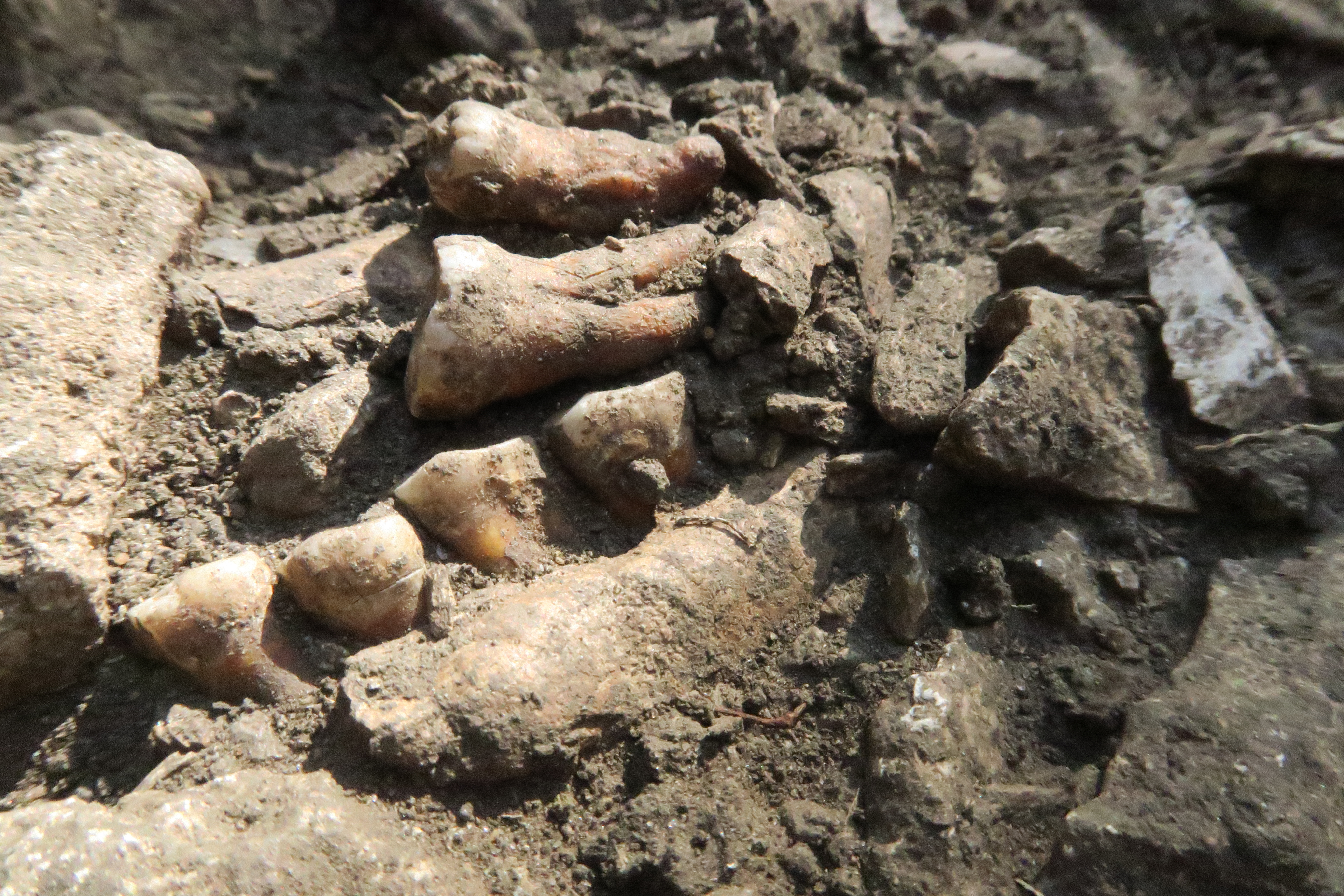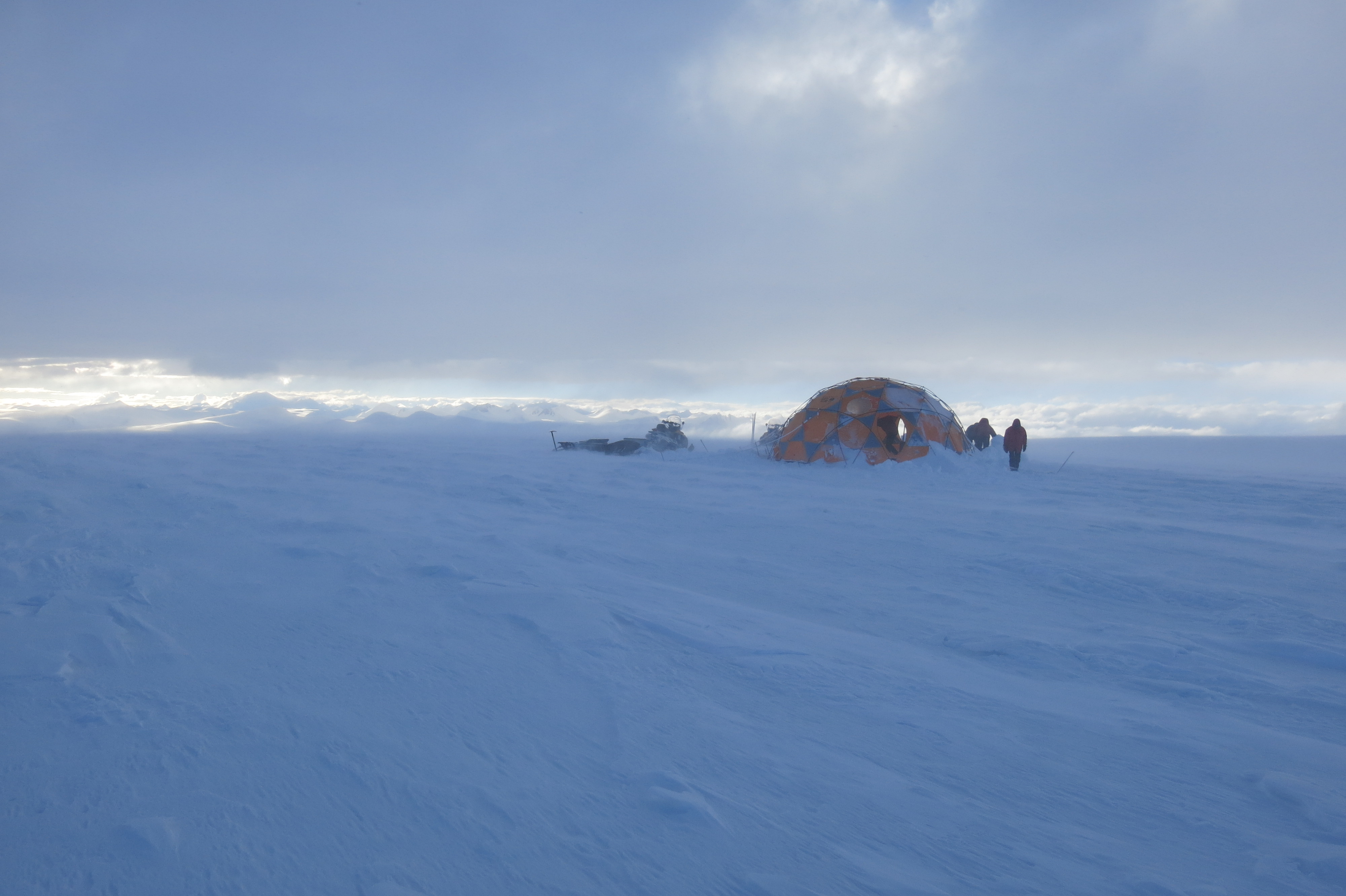New Research
'Pirate Seabirds' Could Become a Pathway for Deadly Avian Flu to Spread to Australia, Study Finds
Kleptoparasitism, in which a bird harasses another to steal its food, might introduce avian flu to the continent, currently the only one without the severe H5N1 strain
Anus-Breathing Animals and Pigeon-Guided Missiles: Ig Nobel Prizes Reward Unusual but Valuable Science
The annual award ceremony featured costumes, songs and paper airplanes as scientists recognized comedic research across ten disciplines
Deaths From Antibiotic-Resistant Infections Could Reach 39 Million by 2050, Study Suggests
A new paper analyzes three decades of fatalities around the world and predicts how "superbugs" will affect human health in the future
A Mysterious Seismic Signal Lasted Nine Days Last Year. It Was a Mega-Tsunami Caused by Climate Change, Researchers Say
A melting glacier caused a mountain in Greenland to collapse into a narrow fjord, setting off an oscillating wave that rattled seismic detectors around the world
Easter Island's Ancient Population Never Faced Ecological Collapse, Suggests Another Study
New DNA analysis adds to growing research indicating the famous Pacific island did not collapse from overuse of resources before the arrival of Europeans
Birds Form Surprising Relationships With Other Avian Species During Migration, Study Suggests
New research indicates that birds are not alone while migrating—and sharing space with other species may even help them on the journey
Ancient DNA Reveals Neanderthal Group Was Isolated for 50,000 Years
A new study, based on the remains of a Neanderthal nicknamed Thorin, is shaking up what archaeologists long thought about these early humans in Europe
These Tiny Fish Will Assess Themselves in a Mirror Before Taking on a Foe
New findings suggest bluestreak cleaner wrasse understand how their body size stacks up against a rival
Watch Eels Make a Great Escape From a Fish's Stomach After Being Swallowed Alive
For the first time, scientists witnessed Japanese eels free themselves from the stomach of a predatory fish in X-ray video footage
These Fish Transformed Their Dorsal Fins Into Taste Buds
From tasting to hunting to hitching a ride, some fins have evolved for a variety of uses beyond swimming
How Large Gold Nuggets Form in Quartz Crystals During Earthquakes
Quartz, which can generate electricity, attracts large chunks of gold when stressed and squeezed by seismic shaking, according to a new study
The Roman Siege of Masada May Have Lasted Weeks, Not Years
New research suggests that the Romans defeated the Jewish rebels at Masada much more quickly than scholars previously assumed
The Surprising Link Between Bats Dying and Human Infant Mortality
A new study finds that when bats in U.S. counties were decimated by the deadly white-nose syndrome, human deaths followed closely behind
Humans Pollute the Environment With 57 Million Tons of Plastic Each Year, Study Suggests
Scientists used A.I. to model local waste management in 50,000 municipalities worldwide and say the results suggest a need to improve access to waste collection systems
An Ancient Asteroid Smashed Into Jupiter's Moon Ganymede and Tipped It Over, Study Finds
The cataclysmic impactor was 20 times the size of the rock that wiped out the dinosaurs on Earth
Scientists Solve a 'Murder Mystery' After a Pregnant, Tagged Shark Got Eaten
It's rare for apex predators to become prey, but researchers suggest they've documented the first known case of a porbeagle shark getting consumed by another animal
Experts Discover 1,700 Ancient Viruses in a Tibetan Glacier
Studying how the viruses, which do not infect humans, adapted to previous major temperature shifts could hold clues to how modern viruses will react to the current climate change
Scientists Identify the Gene Behind Thorny Roses and Other Prickly Plants
A recent study could pave the way to cultivating various thornless plants, making them easier to grow and potentially more widely available
'Matching' Dinosaur Footprints Discovered in Africa and South America
The fossils show how dinosaurs may have crossed between landmasses around 120 million years ago, when the continents were still connected
Fossils Capturing a Sea Cow's Violent End Shed Light on Prehistoric Food Chains
New research suggests the dugong-like sea creature was attacked by a crocodile, then its remains were scavenged by a tiger shark—a rare series of events to be immortalized in the fossil record
Page 5 of 254
:focal(1024x800:1025x801)/https://tf-cmsv2-smithsonianmag-media.s3.amazonaws.com/filer_public/ec/d5/ecd5c13f-686e-403e-9346-9449521e15ec/49884969888_023631f629_k.jpg)
:focal(1719x950:1720x951)/https://tf-cmsv2-smithsonianmag-media.s3.amazonaws.com/filer_public/90/b4/90b4799e-61a3-4eb8-a0af-55a60e8f37fb/screenshot_2024-09-17_at_115149.png)
:focal(1061x707:1062x708)/https://tf-cmsv2-smithsonianmag-media.s3.amazonaws.com/filer_public/8b/7f/8b7f8ad3-a9a5-4997-aa15-1d65c58bc450/gettyimages-1498980269.jpg)
:focal(2736x1824:2737x1825)/https://tf-cmsv2-smithsonianmag-media.s3.amazonaws.com/filer_public/05/3f/053fb316-f806-4f9a-a1ff-e32b9ce59840/12_dickson_2024_glacier3_soren_rysgaard.jpg)
:focal(1200x800:1201x801)/https://tf-cmsv2-smithsonianmag-media.s3.amazonaws.com/filer_public/58/d8/58d86da0-cbee-4298-9a13-039bea8d2ae3/thomas-griggs-anvaqssbtms-unsplash.jpg)
:focal(1959x1306:1960x1307)/https://tf-cmsv2-smithsonianmag-media.s3.amazonaws.com/filer_public/89/81/8981188b-5583-45ce-ae9b-6b9f01e79638/american_redstart_setophaga_ruticilla_17192242094.jpg)

:focal(750x500:751x501)/https://tf-cmsv2-smithsonianmag-media.s3.amazonaws.com/filer_public/70/99/709968db-0b2b-4d0c-8490-ddbf9e3d09e3/press_240911_kobayashi.jpg)
:focal(250x167:251x168)/https://tf-cmsv2-smithsonianmag-media.s3.amazonaws.com/filer_public/79/e9/79e90ab9-edbb-4f1a-94f1-8dd50d1db476/eel_image.jpeg)
:focal(2464x1643:2465x1644)/https://tf-cmsv2-smithsonianmag-media.s3.amazonaws.com/filer_public/5a/6a/5a6ad56d-e2a7-467e-93bc-7640f7f989a2/dsc_3354.jpg)
:focal(1070x703:1071x704)/https://tf-cmsv2-smithsonianmag-media.s3.amazonaws.com/filer_public/f1/f0/f1f0d28b-c341-4086-a57f-09d9c9938f35/gettyimages-858519402.jpg)
:focal(2560x1707:2561x1708)/https://tf-cmsv2-smithsonianmag-media.s3.amazonaws.com/filer_public/d0/e5/d0e5bfe7-9de3-4cf7-8871-861c346a06ec/gettyimages-129229553.jpg)
:focal(1752x1168:1753x1169)/https://tf-cmsv2-smithsonianmag-media.s3.amazonaws.com/filer_public/fa/a5/faa51fb1-20a7-4e91-b66e-fa6f07d81150/6950623578_064d5a166b_o.jpg)
:focal(1280x963:1281x964)/https://tf-cmsv2-smithsonianmag-media.s3.amazonaws.com/filer_public/e4/34/e434dd79-e91e-4b98-8397-c5e84a946729/pollution_plastique_2.jpg)
:focal(400x400:401x401)/https://tf-cmsv2-smithsonianmag-media.s3.amazonaws.com/filer_public/38/a4/38a41af1-fdd7-48bc-b0a8-6d68a83c2d84/moon_ganymede_by_noaa.jpg)
:focal(640x421:641x422)/https://tf-cmsv2-smithsonianmag-media.s3.amazonaws.com/filer_public/c1/92/c1924666-d673-4c82-848f-2b5b2c6328e9/large-sharks-may-be-hu.jpg)

:focal(2128x1419:2129x1420)/https://tf-cmsv2-smithsonianmag-media.s3.amazonaws.com/filer_public/25/28/2528f427-5b55-4e98-b85e-5f9523b4fc9a/gettyimages-157567545.jpg)
:focal(2304x1733:2305x1734)/https://tf-cmsv2-smithsonianmag-media.s3.amazonaws.com/filer_public/b2/6c/b26c25c1-b703-4c9f-960d-06d78eba8581/passagem_das_pedras_1.jpg)
:focal(350x247:351x248)/https://tf-cmsv2-smithsonianmag-media.s3.amazonaws.com/filer_public/19/18/1918a8e7-0220-4d3d-a04d-34bde9a93e5f/low-res_credit_to_jaime_bran_sarmiento.jpg)